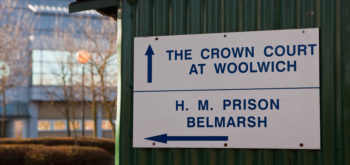The Family Justice Review, the Courts Bill and Mr Justice Ryder’s response on behalf of the judiciary offers a once in a lifetime opportunity to modernise the family law system. I would urge everyone involved in delivering justice for families to be fully supportive of its aims.
One of the key drivers of the changes is to reduce delays in the system, and Mr Justice Ryder rightly acknowledges that essential to achieve is a cultural change. But how to effect this?
Firstly, judicial training and specialism will be addressed. Judges will need the confidence to be able to be able to make risk based decisions. Secondly, there is a need for more effective management of existing judicial resources with more continuity and better listing practices.
It is suggested that in order to better manage public law cases, there will be rule and practice direction changes, known as pathways, relating to the use of experts and a timetable track which will presume that non-exceptional cases can be completed in 26 weeks. Finally, but already up and running is the collation of management information for each court to ensure that
The judicial response highlights delay. It is, of course, totally unacceptable that at the present time public law proceedings take an average of 13 months and it is not unusual for cases to take between two and three years.
There is wide diversity amongst courts with some courts managing an average of almost half that of others. The difference is puzzling and without evident reason. This level of delay is absolutely unconscionable given that these cases involve some of the most vulnerable children in our society.
I particularly welcome Mr Justice Ryder’s proposals to reduce the court’s reliance on expert witnesses. There has been an overuse and a misuse of experts in family proceedings. Often judges, erring on the side of caution and wanting, of course, to have the best evidence before them, have been persuaded into slowing expert evidence when there is not a clear and pressing rationale for their instruction which inevitably leads to an extension of the case and delays for children.
It is shocking that the average number of expert witnesses used in a public law High Court case is seven and in all cases is three and a half. With limited resources, a proper focus on the welfare of the child, tight and effective judicial case management, the use of experts can and should be reduced to the essential.
No room for complacency
Of course, I fully accept that parents involved in care proceedings must have the right to a fair trial but this cannot be at the expense of the paramount importance being for the children whose welfare is at stake. Children who are subject to ongoing litigation are exposed to high levels of distress and anxiety and this can damage their life chances. We cannot allow the very process, which is there to protect them, to harm them.
There is no room for complacency in the family justice system. We must acknowledge that we have failed – despite a genuine commitment on behalf of all of those involved – to reduce delay. Indeed, public law proceedings have increased in average length by about four weeks per year with the average length going up by three weeks over the six months between the publishing of the interim and final reports of the Family Justice Review. We must do better and, I sincerely hope, that the plethora of reforms that is proposed, will go some way to achieving progress.





